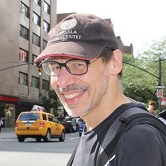Beyond the Negativity of Death: Towards a New Necropolitics
A special issue of Social Sciences (ISSN 2076-0760).
Deadline for manuscript submissions: closed (30 June 2015) | Viewed by 43208
Special Issue Editors
Interests: history, philosophy and sociology of the sciences; transhumanism; science and religion; the future of the university; intellectual property
Special Issue Information
Dear Colleagues,
At least since Ernest Becker’s 1970s anthropological classic, The Denial of Death, but with precedents from Epicurus to Freud, death has been presented as the ultimate fact about the human condition, which while certainly not positive in its own right, only becomes more negative through its denial. This Special Issue is dedicated to denying the two assumptions in this line of thought: (1) that death is the negation of life; (2) that the terms of death are non-negotiable. In this respect, the Special Issue will develop positive, empowering attitudes toward death, perhaps even an ‘economy of death’, removing the sense of absoluteness that still surrounds the topic.
- Death as the ultimate challenge for science to overcome to prove humanity’s supremacy: longevity medicine, cryonics.
- Death as a moment in a process of rejuvenation or resurrection—a re-booting of life.
- Benefits to reputation from either dying early or long ago: i.e., how absence makes the heart grow fonder.
- Death as an opportunity for a new life, say, in a ‘digital afterlife’.
- Death as a hypothetical perspective for regarding the world: i.e., the standpoint of quasi-human spiritual entities who no longer have a material investment in what they observe.
- Death as an incentive for productivity in life: i.e., optimizing personal resources in a finite space and time to leave the greatest legacy.
- Death as an occasion for the individual to validate the collective, say, through self-sacrifice.
- Death as a normal and arguably even progressive feature of experimentation and innovation: e.g., the role of mutation and selection in evolution, the use of extreme experience to define the limits of life.
- Models from the non-human world for adopting a positive attitude toward death: e.g., planned obsolescence, recycling.
Theoretical, empirical, and practice-based studies are welcomed, from any disciplinary or methodological perspective.
Prof. Steve Fuller
Dr. Emilie Whitaker
Guest Editor
Manuscript Submission Information
Manuscripts should be submitted online at www.mdpi.com by registering and logging in to this website. Once you are registered, click here to go to the submission form. Manuscripts can be submitted until the deadline. All papers will be peer-reviewed. Accepted papers will be published continuously in the journal (as soon as accepted) and will be listed together on the special issue website. Research articles, review articles as well as short communications are invited. For planned papers, a title and short abstract (about 100 words) can be sent to the Editorial Office for announcement on this website.
Submitted manuscripts should not have been published previously, nor be under consideration for publication elsewhere (except conference proceedings papers). All manuscripts are thoroughly refereed through a double-blind peer-review process. A guide for authors and other relevant information for submission of manuscripts is available on the Instructions for Authors page. Social Sciences is an international peer-reviewed open access monthly journal published by MDPI.
Please visit the Instructions for Authors page before submitting a manuscript. Submitted papers should be well formatted and use good English. Authors may use MDPI's English editing service prior to publication or during author revisions.
References
Crome, Keith. “The Nihilistic Affirmation of Life: Biopower and Biopolitics in the Will to Knowledge.” Parrhesia 6 (2009): 46–61.
Foucault, Michel. The History of Sexuality, Vol. 1: The Will to Knowledge. New York:Pantheon Books, 1978.
Fuller, Steve. “Making Death Worth Its Cost: Prolegomena to any Future Necronomics.” In Death and Anti-Death, Vol. 11: Ten Years after Donald Davidson. Edited by Charles Tandy. Ann Arbor: Ria University Press, 2013, pp. 81–92.
Grzinic, Marina. “Biopolitics and Necropolitics in relation to the Lacanian four discourses.” Paper presented at the Symposium Art and Research: Shared Methodologies. Politics and Translation, Barcelona, Spain, 6–7 September 2012.
Mbembe, Achille. “Necropolitics.” Public Culture 15 (2003): 11–40 (Translated by Libby Menintjes).
Medovoi, Leerom. “Global Society Must Be Defended: Biopolitics Without Boundaries.” Social Text 25 (2007): 53–79.
Keywords
- death
- biopolitics
- necropolitics
- rejuvenation
- resurrection
- recycling
- self-sacrifice






